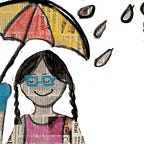Do You Accept Diversity? Find out from the checklist!
via Ginny’s Planet
By: Dr. Shweta Verma, Co-Founder & CEO- Ginny’s Planet
Where do you stand in this process of acceptance of human diversity? Read on and check!
Stage 1: Denial of diversity
Here, we believe that everyone should be like us. We feel most comfortable only with those who are very similar to us, whether in caste, religion, age, etc. We avoid being around those whom we consider ‘different’ and may even feel scared in their company. We continue to carry our opinions about others and may not engage in a logical fact-finding to challenge our opinions.
Stage 2: Acknowledgement
Here, we begin to acknowledge the fact that everyone cannot be same or exactly like us. We are different from each other. This acknowledgement, however, does not convert our fears and avoidance into friendships with ‘others’. We continue to have strong preferences for ‘people like us’ when it comes to renting our flats or homes, or accepting choice of spouse/partner of a family member, especially of female members.
Stage 3: Logical acceptance
Here, in our conversations, especially in public, we acknowledge that people can be of different kinds. We have no evident fear or problem in sharing spaces with different people in our workplaces, schools, colleges, and other groups. However, sharing family as well as work space with ‘others’ is challenging as we continue to expect behaviours that are ‘more acceptable’ to us. This may become even more evident in the way we would communicate on dos and don’ts with children in our family. We may impose certain behaviours on children because we expect them to learn ‘our culture’ and while rejecting behaviours from other cultures.
Further, it is only certain kind of diversities that are acceptable to us. For example, disability as part of human diversity may sound ‘nice’ but confusing as we continue to be fixated with what different people can do and cannot do, or what different people could be ‘allowed’ to do.
We may have several questions and doubts about those who are different from us. But often, we may not feel comfortable in asking questions. We may, however, try to find answers instead of getting stuck with our opinions. In addition to this, some of our questions and statements (e.g. you are not a typical Hindu; you don’t look like a Muslim; you don’t seem disabled at all!) may arise from our comfort in having people similar to us around ourselves.
Stage 4: Acceptance
Here, we would have moved past our fixations, hidden doubts, incomplete information levels and accepted the fact that everyone is different from each other. There is no place for fear and avoidance from people who represent various aspects of human diversity. Differences are not ridiculed and therefore, those who may be different are not made fun of.
Everyone is not expected to be same, like the products from a factory. Imperfections and differences are part of being human. And this message is conveyed through our conversation with children as well when we try to correct their mistakes; or tell them that everyone does not have 10 fingers, two arms, two legs, and two eyes; or that everyone does not greet the same way across the world; or that everyone does not like loud sounds; and so on.
Reflect on where you are! And help build a world where nobody is treated as the odd-one-out on the basis of differences!
Ginny’s Planet spreads empathy & respect for human diversity through workshops, dolls, stories, and games. Write to us to know more: contact@ginnysplanet.com
